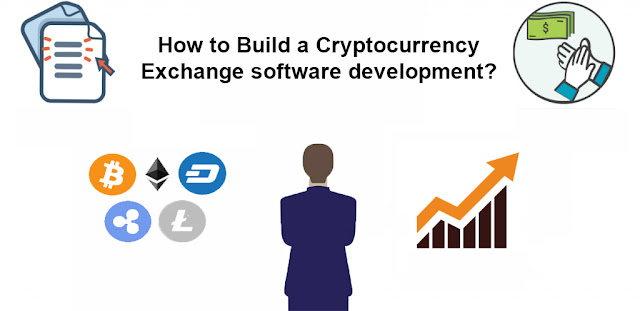Are you curious to know how to create Ethereum wallet?
In the realm of cryptocurrency, Ethereum stands out as a prominent blockchain platform that enables the creation and deployment of decentralized applications (DApps) and smart contracts.
To embark on your journey into the world of Ethereum and start interacting with decentralized finance (DeFi) protocols, non-fungible tokens (NFTs), and other innovative applications, you'll need an Ethereum wallet.
In this guide, we'll walk you through the simple steps to create an Ethereum wallet and take control of your digital assets securely.
7 Keys Steps to Create Ethereum Wallet
• Step 1: Choose Your Wallet Provider
The first step in creating an
Ethereum wallet is selecting a wallet provider that suits your needs and preferences. There are various types of Ethereum wallets available, including desktop wallets, mobile wallets, hardware wallets, and web-based wallets.
Each type offers different features, security levels, and convenience factors. Popular Ethereum wallet providers include MetaMask, MyEtherWallet (MEW), Trust Wallet, and Ledger Nano S. Research each option carefully to determine the best fit for your requirements.
• Step 2: Download or Access Your Chosen Wallet
Once you've chosen your wallet provider, proceed to download the wallet application or access it through your web browser. For desktop and mobile wallets, visit the respective app stores or official websites to download the wallet software.
If you've opted for a web-based wallet like MetaMask or MyEtherWallet, simply navigate to their websites and follow the instructions to create an account.
• Step 3: Create a New Wallet
After downloading or accessing your chosen wallet, it's time to create a new wallet account. Follow the on-screen prompts and instructions provided by the wallet provider to initiate the wallet creation process.
You'll typically be asked to choose a strong password or passphrase to secure your wallet and generate a unique set of cryptographic keys, including a private key and a public address.
• Step 4: Safeguard Your Private Key and Recovery Phrase
Your private key is a crucial component of your Ethereum wallet, as it grants access to your funds and allows you to sign transactions. It's essential to keep your private key secure and confidential at all times.
Additionally, most wallet providers will generate a recovery phrase or seed phrase consisting of a series of words that can be used to recover your wallet in case of loss or theft.
Store your private key and recovery phrase in a safe and secure location, preferably offline or in a hardware wallet, and never share them with anyone else.
• Step 5: Verify Your Wallet and Backup Your Data
Before using your newly created Ethereum wallet, it's important to verify its authenticity and functionality. Double-check that you've recorded your private key and recovery phrase accurately, and ensure that you've completed all the necessary steps to secure your wallet.
Additionally, some wallet providers may offer additional security features such as two-factor authentication (2FA) or multi-signature (multisig) support. Enable these features if available to enhance the security of your wallet further.
Finally, consider backing up your wallet data regularly to prevent data loss in case of device failure or software issues.
• Step 6: Fund Your Wallet with Ethereum (ETH)
Now that your Ethereum wallet is set up and secured, you're ready to add funds to it. To do this, you'll need to acquire some Ethereum (ETH) from a cryptocurrency exchange or peer-to-peer (P2P) trading platform.
Once you've obtained ETH, initiate a transfer from the exchange or trading platform to your Ethereum wallet by providing your wallet's public address.
Depending on network congestion and transaction fees, the transfer may take some time to complete. Once the transaction is confirmed, you'll see the ETH balance reflected in your wallet.
• Step 7: Explore and Engage with the Ethereum Ecosystem
With your Ethereum wallet funded and ready to use, you're now free to explore the vast array of decentralized applications (DApps), DeFi protocols, NFT marketplaces, and other innovative projects built on the Ethereum blockchain.
Whether you're interested in decentralized finance, digital art, gaming, or social networking, there's something for everyone in the Ethereum ecosystem.
Use your wallet to interact with DApps, participate in token swaps, stake your ETH, or mint your own NFTs. The possibilities are endless, and your Ethereum wallet is your gateway to unlocking them.
Which is the Best Ethereum Wallet Development Company?
Creating an Ethereum wallet is a straightforward process that empowers you to take control of your digital assets and participate in the exciting world of blockchain technology.
By following these simple steps and exercising caution with your private key and recovery phrase, you can safely navigate the Ethereum ecosystem and unlock its full potential.
If you are looking for a
crypto wallet development, we can recommend you with a blockchain developer. Coin Developer India is widely recognized as one of the best Ethereum wallet development companies.
With their expertise in blockchain technology and cryptocurrency solutions, Coin Developer India offers top-notch wallet development services tailored to clients' needs.
Their team of skilled developers ensures the security, functionality, and user experience of Ethereum wallets, enabling users to seamlessly interact with the Ethereum blockchain and manage their digital assets.
When it comes to Ethereum wallet development, Coin Developer India stands out for its reliability, professionalism, and commitment to delivering innovative solutions that empower users in the world of blockchain technology.
Want to develop crypto wallet? Hire crypto wallet developer from Coin Developer India. Call/Whatsapp:
+91 7014607737




Comments
Post a Comment